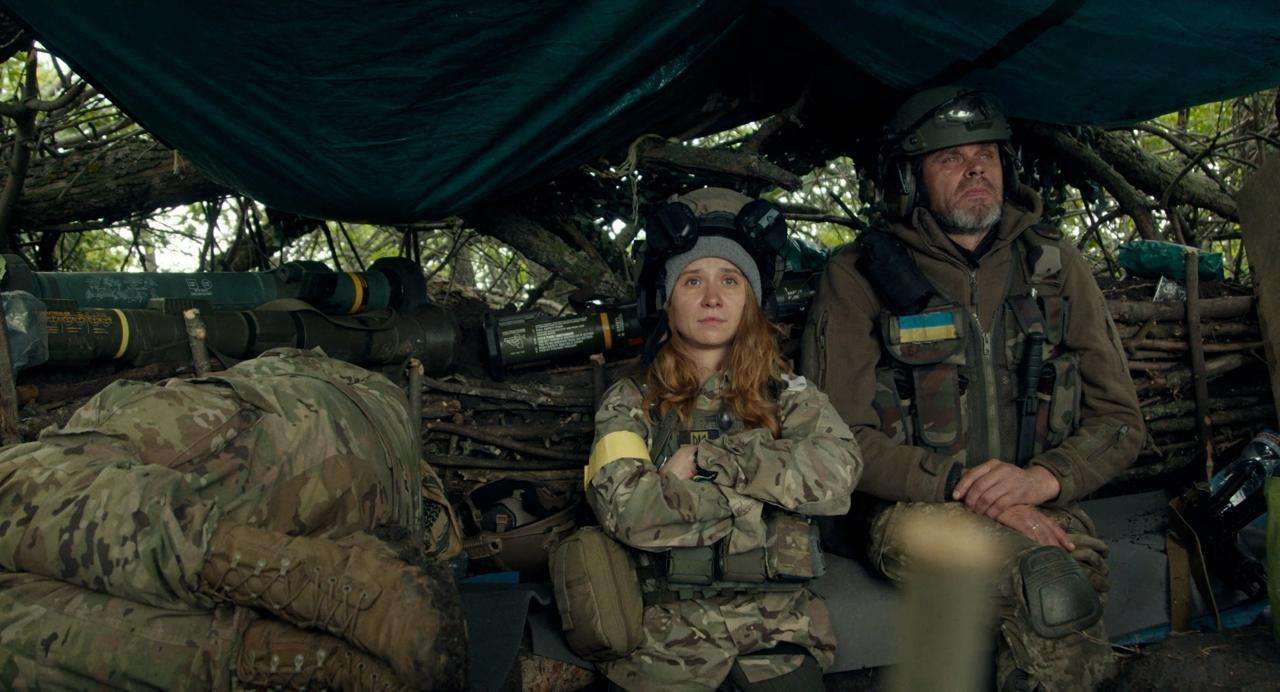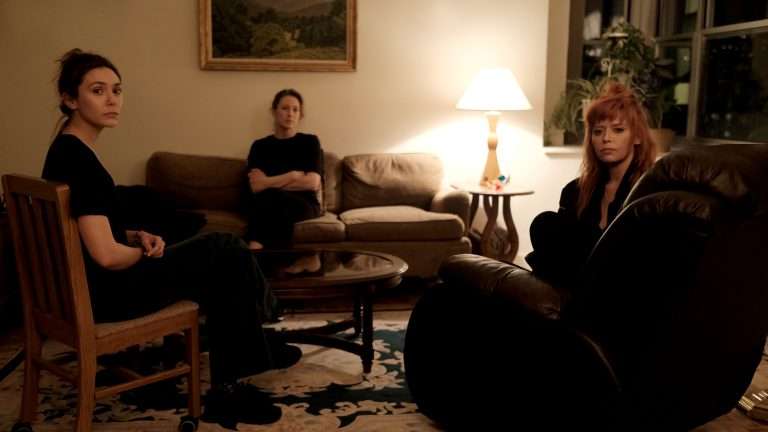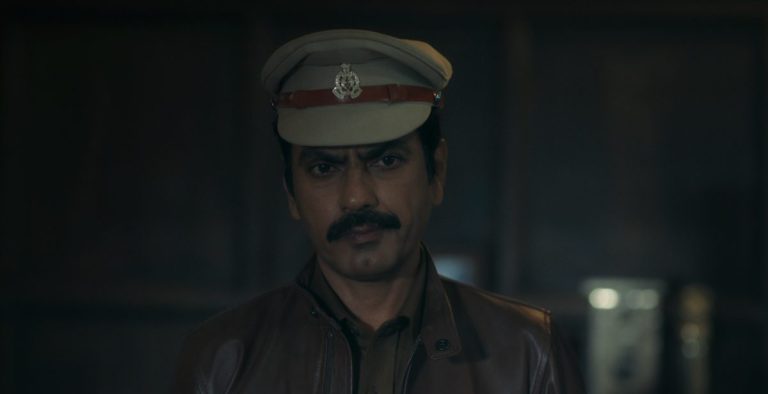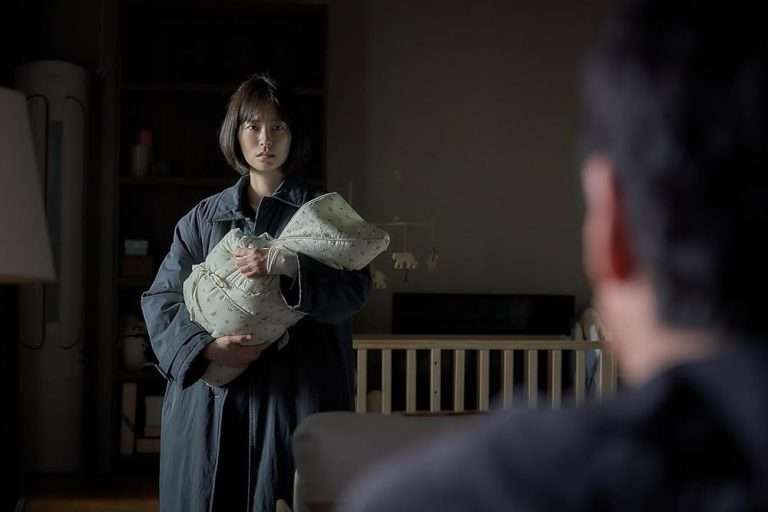In “My Dear Théo,” Alisa Kovalenko presents an unforgettable, searing, tender chronicle of the months she served on the frontline in Ukraine. We begin with February 2022, when she joins the volunteer army as the Russian occupation tightens its grip. Her son, Théo, goes to France where her husband has family. Kovalenko stays behind, fighting for her beleaguered country. For her, the war erupted much earlier, dating to 2014 when Russia invaded Crimea. Now, she feels particularly beholden that she must do her bit, not retreat and scamper off as the aggressor would want.
Kovalenko keeps a memory diary, recording the events of the day for herself, her son as well as history’s sake. She maintains she can shoot only when circumstances are relatively less tense, seemingly less precarious and there’s some semblance of fleeting stability. It’s a one-way correspondence with her wondering if her son would like it in their ‘trench city’. “My Dear Théo” is as wrenching, desperately sad in a sort of inevitable helplessness as it sweeps through the mundane act of scanning a particular landscape, constantly keening for the faintest signs of danger, a threat that can blow up the situation.
A clear emphasis is placed on the deliberate choice, in all its pained depth, that Kovalenko and fellow special forces have made in signing up for frontline service. She talks of battling the guilt that would have followed her if she didn’t do what she feels she ought to do for her country, hence she accepts the decision to be here amidst acute vulnerability, being away from loved ones. It’s an act of radical parenthood she and her fellows partake in, stepping forth now so that their children wouldn’t have to bear the scars, the burden of a shattered homeland.
With laser-like precision, Kovalenko locates isolated silos, a community of soldiers huddling, wherein people from all walks of life come together mobilized by patriotic affirmation and torn by yearning from their distant families. It’s a motley group of engineers, lawyers, and fitness trainers, bound together in shared resolve to rescue their country from further damage and shield posterity as much as possible. They fight as well as peel potatoes together, becoming a shelter for each other. They share a laugh and share stories of their children.

“My Dear Théo” intensely probes the seemingly interminable spells of waiting during wartime efforts. Between carefully surveying the territory, launching an offensive, and the next attack, there are periods that demand patience, persistence, and perseverance that cannot afford to run out. You learn to wait in the wings, squaring yourself for whatever rains on you.
You stare at the same landscape for hours; “time and space merge”, she notes, adding, “you become part of one continuous nerve”. It’s like the body itself gets inextricably embedded within the geography. Your gaze wanders through atmospheric elements, the trees, the leaves, birdsong, and the absolute stillness that occasionally blankets before violence and shelling crash in. Kovalenko expands the texture of these moments, showing the agony they trudge through, a clutch of heart-shaking uncertainties, the ache for home versus that for family.
Being locked on the frontlines requires high-wire focus and nerves of steel. You can’t waver, doubt, or buckle under duress. The film strenuously whittles away at any shred of hysterics with representation, situating instead the endless sense of ennui, time stretching out beyond the functional patterns, routines of a day, the crippling bouts of utter terror, the dread and anguish freezing your insides as brutality reveals its full shape. Kovalenko details walking by petal mines. There are confrontations with everyday mortality, death, and loss swoop in as expected and yet leave you numbed with grief over someone you’ve shared several meals with, the very act of passing unbearably tense, life-imperiling situations on a long roll. Irrespective of how long you sense it on the brink when you do encounter devastation, it’s “impossible to comprehend it, reconcile with it”.
“My Dear Théo” comes alive with melancholic, wistful force as we witness Kovalenko and those around her, becoming a tight-knit family, wrestle with the passion, commitment to their roots that are at stake, while being ever so pulled by the need of loved ones. The sorrow emanates from this tussle. “My Dear Théo” prises displacement, competing pulls therein with singular, precise understanding and penetrating vulnerability.




![Trust [2021] Review: A formulaic infidelity tale about rich, white Americans](https://79468c92.delivery.rocketcdn.me/wp-content/uploads/2021/07/Trust-1-highonfilms-768x512.jpg)


![Sorry We Missed You [2019] ‘MAMI’ Review – Repercussions of shifting Gig-economy](https://79468c92.delivery.rocketcdn.me/wp-content/uploads/2019/11/Sorry-We-Missed-You-Review-768x432.jpg)
